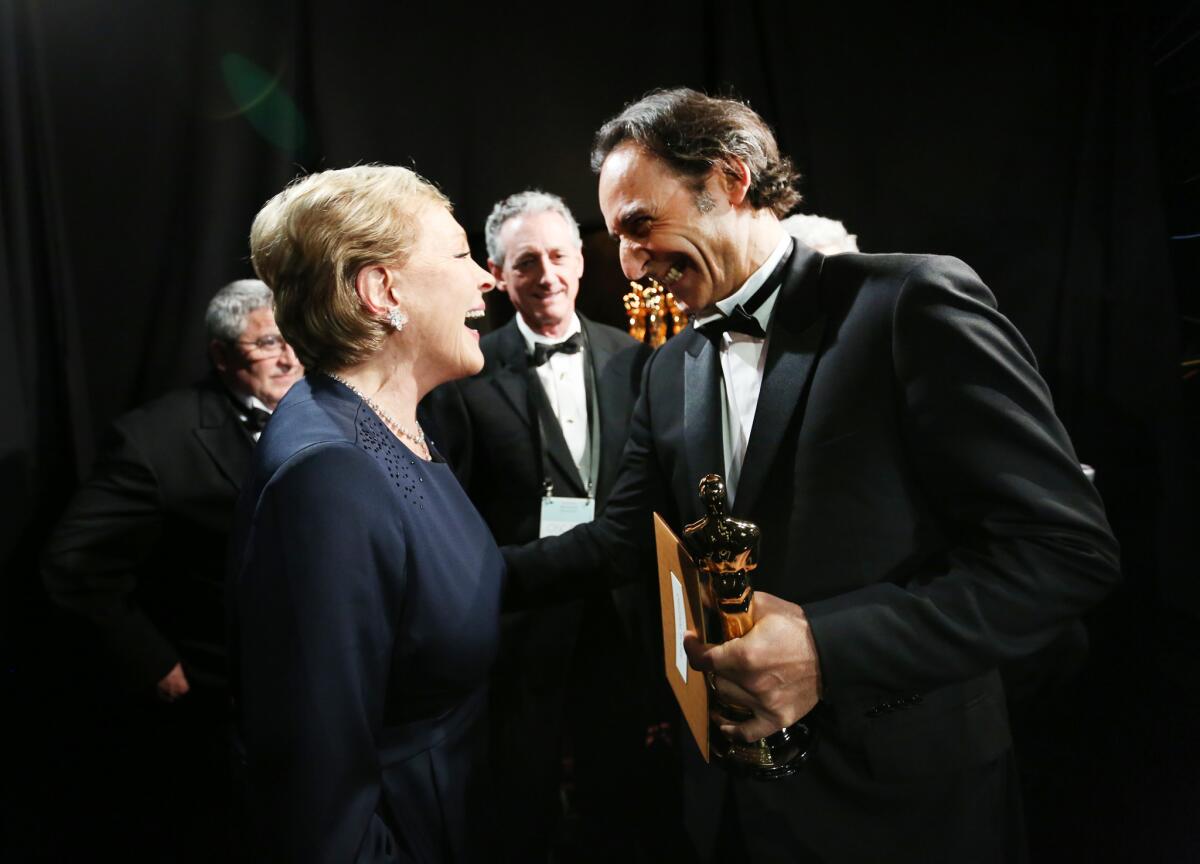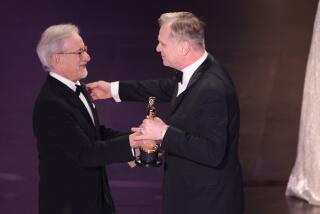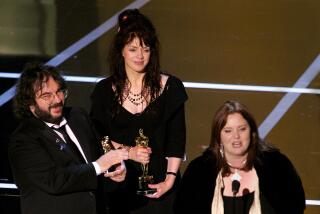Oscars 2015: Plot twists and turns keep show fresh

The Nobel Prize-winning novelist Isaac Bashevis Singer used to say he liked writing for children because they didn’t read the New York Times Book Review, they just liked what they liked. The same can be said for Oscar voters: They don’t care about what the cottage industry of predictors says they’ll do, they just like what they like.
Yes, it’s true, some of the things everyone said would happen — Julianne Moore as lead actress for “Still Alice,” J.K. Simmons as supporting actor for “Whiplash” and “Birdman” as best picture — did follow the script.
But having “Whiplash” come away with three Oscars, more than any film except “Birdman” and “Grand Budapest Hotel” (which tied with four), was not expected, though perhaps should have been.
FULL COVERAGE: Oscars 2015
For in the relentlessness of its character-driven melodrama, “Whiplash” was old-school Hollywood made on a tight budget, something, as I’ve said before, that you could imagine back in the day with someone like John Garfield in the Miles Teller role.
People like to say tastes change, but that is more the case with studio executives than people who watch the movies.
The surprises didn’t end there. “Big Hero 6” topped the highly touted “How to Train Your Dragon 2” and the underappreciated “Interstellar” nabbed the visual effects prize from the favored “Dawn of the Planet of the Apes.”
But one of the things that makes the Oscars such an engaging show to watch is not just the unexpected nature of who gets what. It’s the surprising things the winners say, and this turned out to be a year when those kinds of comments were more than the rule than the exception.
PHOTOS: Red carpet | Show highlights | Quotes | Backstage look | Winners’ room
Largely gone this year were winners who took up their entire acceptance time with endless laundry lists of thank yous to everyone from their agents to the guy who delivers the pastrami sandwiches to the production office.
Instead, perhaps made conscious by social media of what an enormous platform the Oscar broadcast was, people at the microphone really said what was on their minds. This was true both in tiny moments — presenter Jessica Chastain blurting out “Chivo!,” the nickname for “Birdman” director of photography Emmanuel Lubezki, when she announced the cinematography award — as well as larger ones.
Most moving was “The Imitation Game’s” Graham Moore, winner of the adapted screenplay Oscar, who talked candidly about having tried to kill himself at age 16 because of how unlike everyone else he felt.
“Stay weird, stay different,” he counseled any young people in his position. “When it’s your turn, pass that message on.” Dana Perry, co-director of the winning documentary short “Crisis Hotline Veterans Press 1” had earlier revealed that her son had committed suicide and insisted, “we should talk about suicide out loud.”
VIDEO: Q&As with the contenders
Also forthright was supporting actress winner Patricia Arquette (the night’s only “Boyhood” victor), who spoke out forcefully to the members of her own sex, saying “it’s our time to have equal rights for women in the United States of America.”
Winners like Simmons and “Grand Budapest Hotel” composer Alexandre Desplat also talked with great passion about how important their marriages were in their lives. And Simmons went him one better, forcefully telling any and all listeners that “if you’re lucky enough to have a parent alive on this planet, don’t text them, call them. And listen to them as long as they want to talk.”
And then there were those who unrestrainedly gave themselves to the craziness of the moment, like “The Theory of Everything” lead actor winner Eddie Redmayne, who admitted up front, “I’m incapable of articulating how I feel.”
Just as astonished, if not more so, was Pawel Pawlikowski, director of “Ida,” the foreign-language winner from Poland.
INTERACTIVE: How to win an Oscar
“A black-and-white film about silence, the need for contemplation, how did I get here, the epicenter of noise,” he said.
Another noteworthy element of this year’s event was the way it ended up, more than ever, focusing on continuity within the industry, something that was clearly the aim of having Lady Gaga do a tribute to “The Sound of Music” and then bring Julie Andrews on stage.
But continuity was a theme in other ways as well. The In Memoriam segment, movingly introduced by Meryl Streep, was effective as always, especially with the inclusion of below-the-line individuals as well as such welcome names as independent pioneer L.M. Kit Carson and former Times film critic Charles Champlin.
In fact, just seeing the below-the-line creators have their moment of glory when they accepted their Oscars, ill at ease in the spotlight though some were, was a signpost that moviemaking at its best is not the plaything of stars, writers and directors but a group effort that needs everyone pitching in. We can’t be reminded of that too often.
Twitter: @KennethTuran
More to Read
Only good movies
Get the Indie Focus newsletter, Mark Olsen's weekly guide to the world of cinema.
You may occasionally receive promotional content from the Los Angeles Times.







